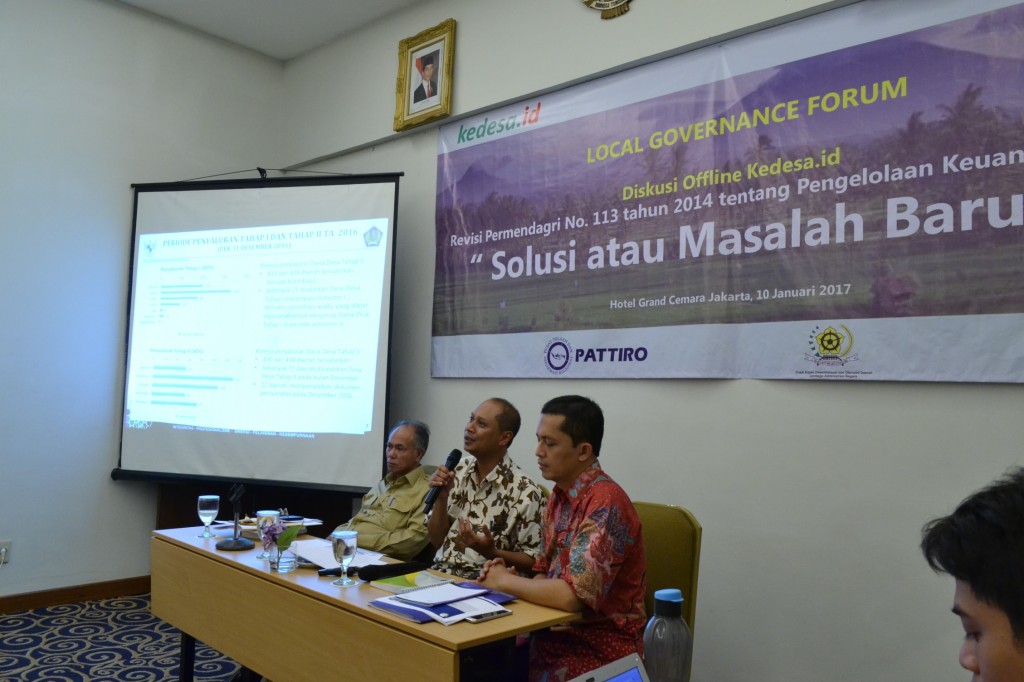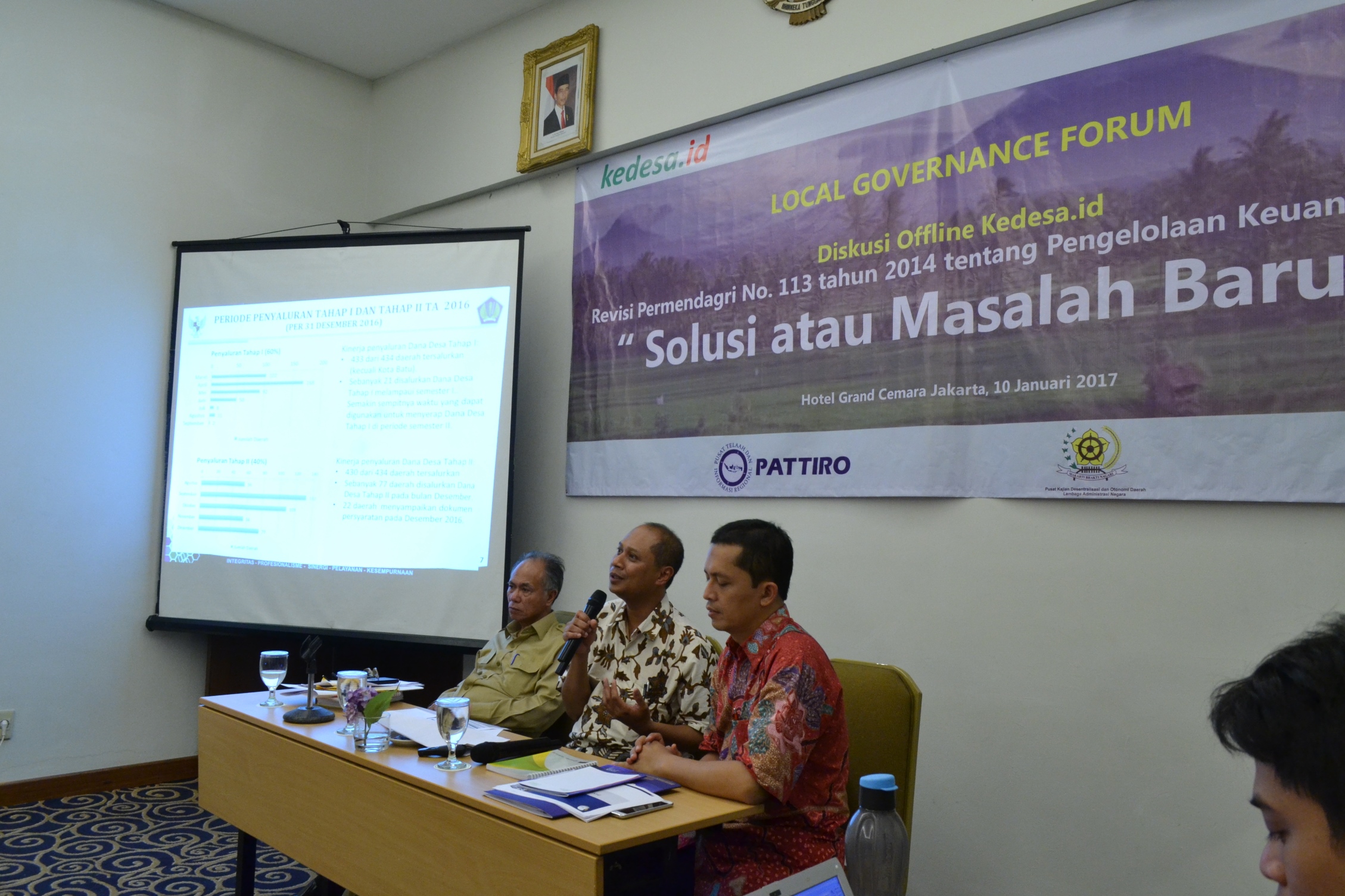
The presence of the Village Law (UU) is expected to be a generator of the village economy and equal distribution of prosperity. In this law, villages are given the authority to manage their territory, government, development, community development and community empowerment. With this authority, the village then receives a delegation of funds from the State Revenue and Expenditure Budget (APBN) which is called the Village Fund in accordance with the mandate of Article 72 of the Village Law.
Apart from Village Funds, villages also receive Village Fund Allocations (ADD) which are sourced from Balancing Funds received by the Regency/City. These two financial resources are the source of strength for the Village Revenue and Expenditure Budget (APBDes) which must be managed by the Village Government in a participatory, transparent and accountable manner.
However, in its own management, the Village experienced difficulties. The reason is that the regulations for managing the APBDes are varied, some come from the Ministry of Home Affairs, namely Permendagri NO 113 of 2014 concerning Village Financial Management (including ADD and Village Funds), and some come from the Ministry of Finance, namely PMK No 49 of 2016 which specifically regulates Village Fund.
Secretary General of APDESI, Agung Heri stated, without the administration of Village Funds, Village Governments already have many administrative tasks in serving their citizens. “A paradigm has emerged among APDESI friends not to accept Village Funds because they feel it is burdensome,” said Agung in a discussion forum: Revision of Permendagri No. 113 of 2014 concerning Village Financial Management, “Solution or New Problem?”, Grand Cemara, Gondangdia, Central Jakarta, Tuesday (10/1).
It’s not that they don’t want to make reports, added Agung, with limited staff, it is difficult for villages to align with Regional Work Units (SKPD) in making reports. Moreover, the SKPD is tasked with working according to its work area, while the village takes care of all community services. “All official activities are carried out in the village,” said Agung. “Therefore, don’t be burdened with complicated administration,” he added.
In line with Agung, Director of Village Government Financial and Asset Management Facilitation at the Directorate General of Village Government of the Ministry of Home Affairs, Lukman Nul Hakim, said that financial reports from regional governments alone have reached thousands. Therefore, don’t be burdened by the many reports from the village. As a result, technical problems will take up a lot of village officials’ work time.
“Then who thinks about the village’s potential?” asked Lukman at the same location.
Therefore, continued Lukman, in order to be efficient in carrying out the mandate of the Village Law, especially in financial management, the revision of Permendagri Number 113 of 2014 concerning Village Financial Management must be in synergy with all parties, “So that there is no confusion because there are many different routes,” he stressed. Lukman.
The synergy in preparing the revised Permendagri was also agreed by the Executive Director of PATTIRO, Maya Rostanty, not only synergy but also the rules regarding management reports must be simple so that they can be understood by village officials but still fulfill the principles of transparency and accountability. Apart from that, the preparation process needs to be carried out in a participatory manner by providing space for all stakeholders to provide input.
“So that in the end when this regulation is issued there will be no more objections,” he said.
This was agreed by Kresnadi Prabowo Mukti, a representative from the Directorate General of Financial Balance of the Ministry of Finance, “Inevitably, there must be proof of expenditure. “The way it is poured will be as simple as possible,” he said.
In simplifying financial reports, resource person from KSAP, Joni Afandi added, his party is currently preparing Village Financial Reporting Standards which will simplify financial reports, where seven aspects of reporting at the Regional Government level will be reduced to three aspects, namely Budget Realization Report, Balance Sheet and Notes regarding Financial Reports, “The report is only required once a year, and will be valid for 2018,” he said. However, if it does not meet the target, it can be postponed until 2023.
From the ongoing regulatory drafting process, monitoring efforts are needed by all parties and PATTIRO will continue to supervise together with other stakeholders. (AR)





